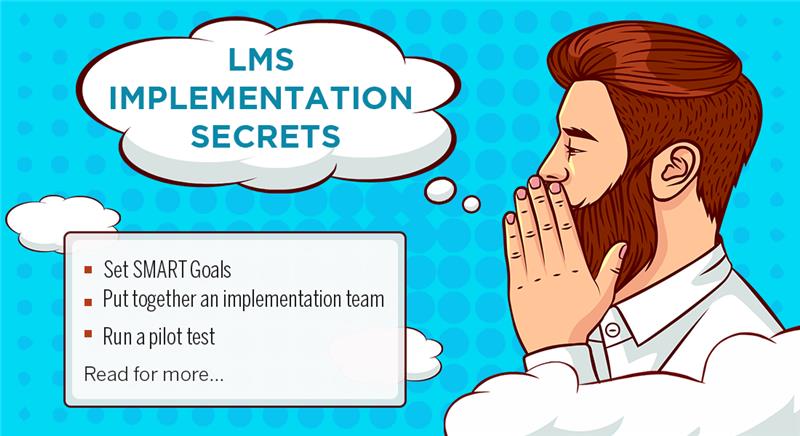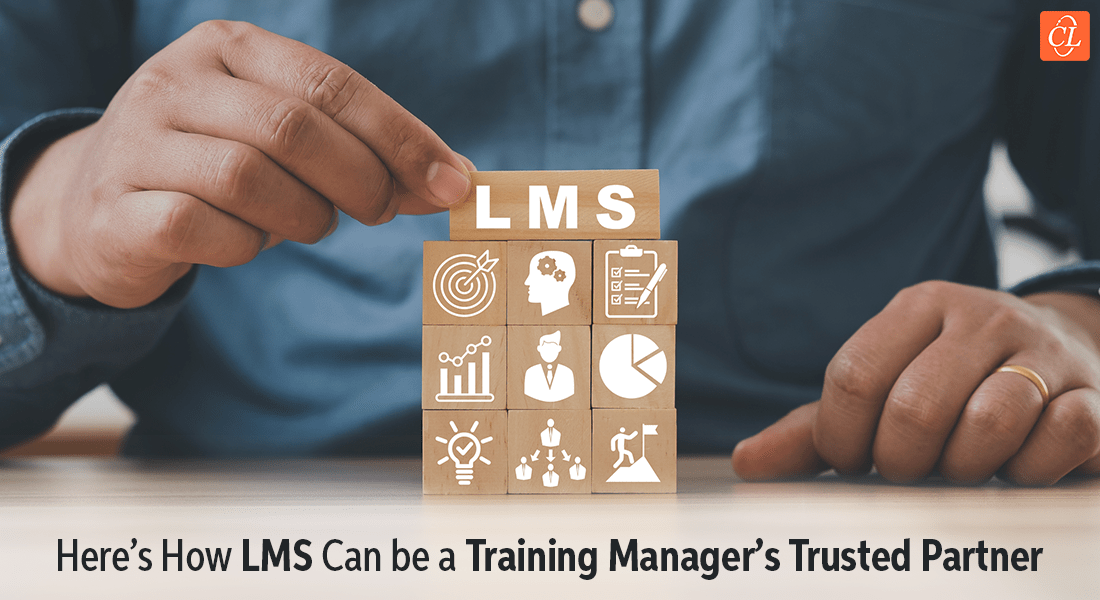15 Questions You Were Too Afraid to Ask About the LMS

Are you planning to host and manage your training online? Want to deliver your training to a global audience and are not sure how to go about it? Training is your forte but are you lost when it comes to hosting the courses online? What are the typical questions that come to your mind when you want to take your training online? Can you get all your answers online without getting confused?
If you search online, you may rarely find straightforward simple explanations to the questions you may have; are you confused trying to choose from the multitude of options available for hosting courses online? What is the best solution that suits your requirement – that fits into the time and budget?
Learning Management Systems!
LMS is a Fantastic Platform to Host Online Courses
Here are a few FAQs around LMS that’ll steer clear your doubts:
- What are the basic features of LMS?
- What type of training materials can be hosted on LMS?
- Can we use LMS for classroom training management?
Read on to get answers to more FAQs.
15 Common FAQs About LMS Answered
Here is a list of frequently asked questions (FAQs) by our customers who are planning to take their corporate training courses online. Hope these questions will be useful when you are exploring options for hosting your training material online.
1. What is required to host eLearning modules online?
There are many options available to host the eLearning courses online. It depends on your requirements.
- Website: E-learning can be accessed free without any security login. You cannot track the details of the users of the course, how much time they spent, or who completed the course.
- Portal: In addition to website features, you can add security login, and track basic information like who took the course. You can generate some basic reports.
- Learning Management System: LMS is the best application for hosting and tracking. You can manage user accounts; you can see who all have accessed them, how much time they spent, what score, or who completed successfully. You can generate reports to get any specific information.
Watch this video to explore the most popular LMS platforms.
2. What are the options available to host the LMS?
- Software as a service: The LMS service provider will install the LMS on their server and provide the LMS admin and users access details from their server.
- On-Premise: The LMS service provider will install the LMS on your existing or new/separate server and then hand over all the access details. You may or may not share the access details once installed and the handover process is completed.
→ Download eBook: Leveraging LMS as an Extended Learning Enterprise
3. What are the basic features of Learning Management System?
.png?width=900&height=527&name=Uses%20of%20LMS%20in%20Corporate%20Training%20(2).png)
Any Learning Management System will have the following basic features:
- Secured login
- Customized look and feel
- Dashboard for current and completed training
- Calendar to display or register classroom training
- Ability to upload any training material
- Have the report generator module
- Built-in quick assessment tool
- Multilingual feature
- Should accept SCORM/AICC compliance courses
- Online certification features
4. What type of training material I can upload on LMS platform?
- SCORM/AICC-compliant courses
- Any documents such as PDF, PPT presentations, word documents, audio, videos, etc.
5. Can we use LMS for classroom training management?
Yes, you can easily manage classroom training via an LMS. Participants can view upcoming training sessions and send registration requests to their managers. The manager can view and approve the registration request. Trainers can monitor the participants’ registrations and classroom capacity. The waiting list option will also be available. Reminders and alerts will be sent by the learning management software automatically.
6. Can I generate specific reports?
.png?width=900&height=527&name=Benefits%20of%20Having%20Reports%20on%20LMS%20(2).png)
Yes, by default, LMS platform will have almost all the reports that you want to analyze. Additionally, you can leverage LMS admin services t o create customized reports according to your requirements.
7. Can I manage the LMS without LMS support from the vendor?
Yes. However, you should make the decision based on the team available to you. LMS support is a must to fix issues and its need is always felt no matter how intuitive the LMS design is. You can select the LMS support team within your organization or you can also outsource it to any other third-party vendor. The bottom line is that you should have a dedicated team to manage and administer your learning management software.
Struggling to choose the right LMS and evaluate vendors? This video breaks down everything you need to know to make the best decision!
8. Can I send weekly newsletters to all learners with a predefined template?
Yes, you can send newsletters to all registered users of the LMS. You can create templates and reuse it every week. You can also send the newsletter according to the user groups.
9. Is it possible to migrate old training data into the learning management software?
All training that happens offline or any training information available can be imported into the Learning Management System using the training migration tool. All you need is to provide the information in an excel sheet. The LMS admin team will convert it into the proper format and import it into the LMS.
10. Can I provide an online certificate to learners?
Yes. It is possible to generate a dynamic certificate after successful completion of the course. Certificates can be stored in the Learning Management System and users can download and print them whenever they want once they successfully complete the course. Administrators can monitor the certificates issued. Certificates can be customized to match your company’s standard design certificate.
11. Can I integrate the LMS with existing ERP systems?
Yes. It is possible to integrate your LMS with third-party applications such as SAP, CRM, SharePointWebEx, GotoMeeting, etc.
12. How much time is required to set up the LMS?
It depends on the type of customization and specific features you are looking at. All the LMS vendors have standard LMS that you can use as it is. The latest version of the LMS can be installed with basic customization within a week, once you provide all the users’ and courses’ details.
13. Can I sell courses online?
Yes, you can sell the courses online using free or paid payment gateways. Paypal is free but it does not work in some countries due to restrictions by that country. Some other paid payment gateways such asCCavenuewill work everywhere. Users can pay using their credit card, debit card, or net-banking online and get immediate access without the need for the involvement of the LMS administrator. Email notifications will be sent for all the transactions by the LMS automatically. Invoice generation is also available for bulk purchases.
14. How can I do bulk user enrolments?
You do not have to worry about enrolling in multiple courses for many users. You can easily do it using the migration tool or the bulk enrolment feature in the LMS.
15. Can I give access to the LMS to a sub-administrator with certain permissions within their region?
Many of our customers asked this question. Yes, we can divide the users based on the domain and give administration access. Those sub-administrators can create and assign the courses for which their domain belongs. They cannot view or edit the users or courses of another domain. Main administrators will have access to all the users and courses of any domain.
To Conclude
LMS is a wonderful platform to host and manage your online learning courses efficiently. It makes your training delivery seamless and improves the accessibility of your training courses. Tracking learner progress and generating relevant reports and statistics to evaluate the performance of your courses is also easy with LMS.
Are you keen to know more about the vast scope of LMS in today’s business scenario? Get your hands on this eBook to foster a dynamic learning environment in your organization for enhanced growth and creativity.





![Learning in the Flow of Work with a Modern LMS [Infographic]](https://blog.commlabindia.com/hubfs/Imported_Blog_Media/lms-learning-flow-work-info.jpg)